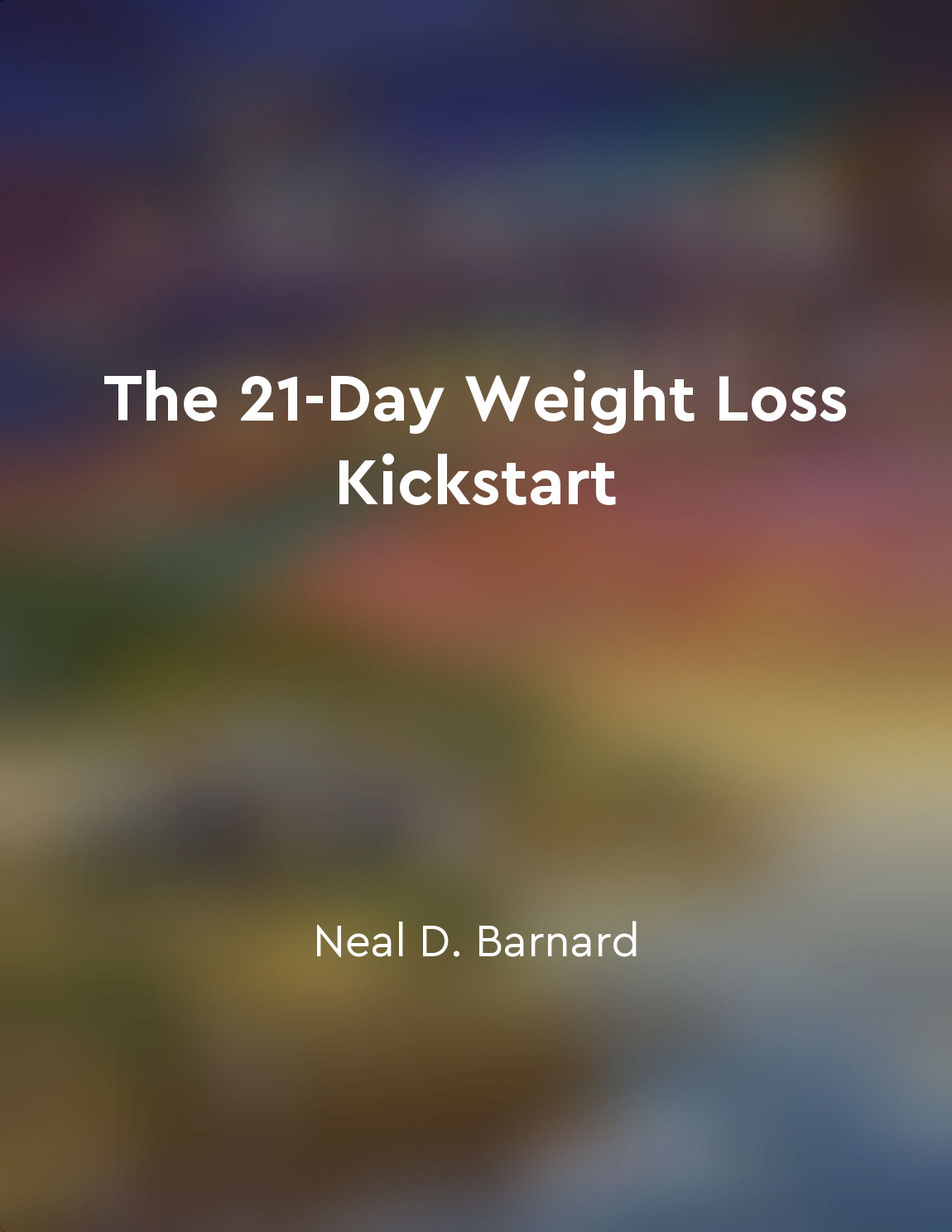Limiting oils and added fats from "summary" of The Engine 2 Diet by Rip Esselstyn
When it comes to oils and added fats, it's important to understand their impact on your health. While some fats are necessary for our bodies to function properly, it's easy to overdo it and consume more than we need. This can lead to weight gain, clogged arteries, and increased risk of chronic diseases like heart disease and diabetes. In the Engine 2 Diet, we focus on limiting oils and added fats in order to promote optimal health and well-being. By cutting back on these sources of fat in your diet, you can lower your overall calorie intake and reduce your risk of developing these serious health conditions. This doesn't mean you have to completely eliminate fats from your diet, but rather be mindful of the types and amounts you consume. One of the main sources of added fats in our diets comes from processed and packaged foods. These products are often loaded with unhealthy fats like trans fats and saturated fats, which can wreak havoc on our bodies. By avoiding these processed foods and opting for whole, plant-based foods instead, you can significantly reduce your intake of harmful fats and improve your health. In addition to avoiding processed foods, it's important to be mindful of the oils you cook with and use in your meals. While some oils like olive oil and coconut oil have been touted as healthy options, they are still high in calories and can contribute to weight gain if consumed in excess. Instead, try using alternatives like vegetable broth, water, or non-stick cooking spray to sauté your vegetables and cook your meals. By making simple swaps and being mindful of the sources of fats in your diet, you can easily limit your intake of oils and added fats without sacrificing flavor or satisfaction in your meals. This small change can have a big impact on your health and well-being in the long run. So, next time you're in the kitchen, think about how you can reduce the amount of fats in your meals and make choices that will benefit your body in the long term.Similar Posts
Alcohol in moderation is acceptable
Alcohol can be a controversial topic when it comes to health. Many people wonder if it is necessary to completely abstain from ...
Consumers can break free from the cycle by making conscious choices
Consumers have the power to liberate themselves from the relentless grip of the food industry by being mindful of the choices t...

Emotional eating should be addressed
Emotional eating is a topic that often gets swept under the rug when it comes to discussions about food and nutrition. However,...
Ayurvedic cooking can help prevent illness
Ayurvedic cooking is a holistic approach to food preparation that takes into consideration the unique constitution of each indi...

Buying local supports farmers
When we choose to buy locally grown produce, we are making a decision that goes beyond simply acquiring food. We are actively s...
Consumers are disconnected from the sources of their food
Consumers today have grown increasingly disconnected from the sources of their food. In our modern world, food is readily avail...
Prioritize selfcare and adequate rest for overall wellness
In order to achieve optimal health and well-being, it is essential to make self-care and adequate rest a top priority in our da...

Cooking with heat requires patience and practice
The simple act of cooking with heat requires a level of patience and practice that is often underestimated. It is not merely a ...
Lifestyle choices affect wellbeing
Our wellbeing is greatly influenced by the choices we make in our daily lives. These choices encompass a wide range of decision...

Focusing on longterm health benefits rather than quick fixes is important
When it comes to achieving lasting health and weight loss results, it is crucial to shift our focus from quick fixes to long-te...

